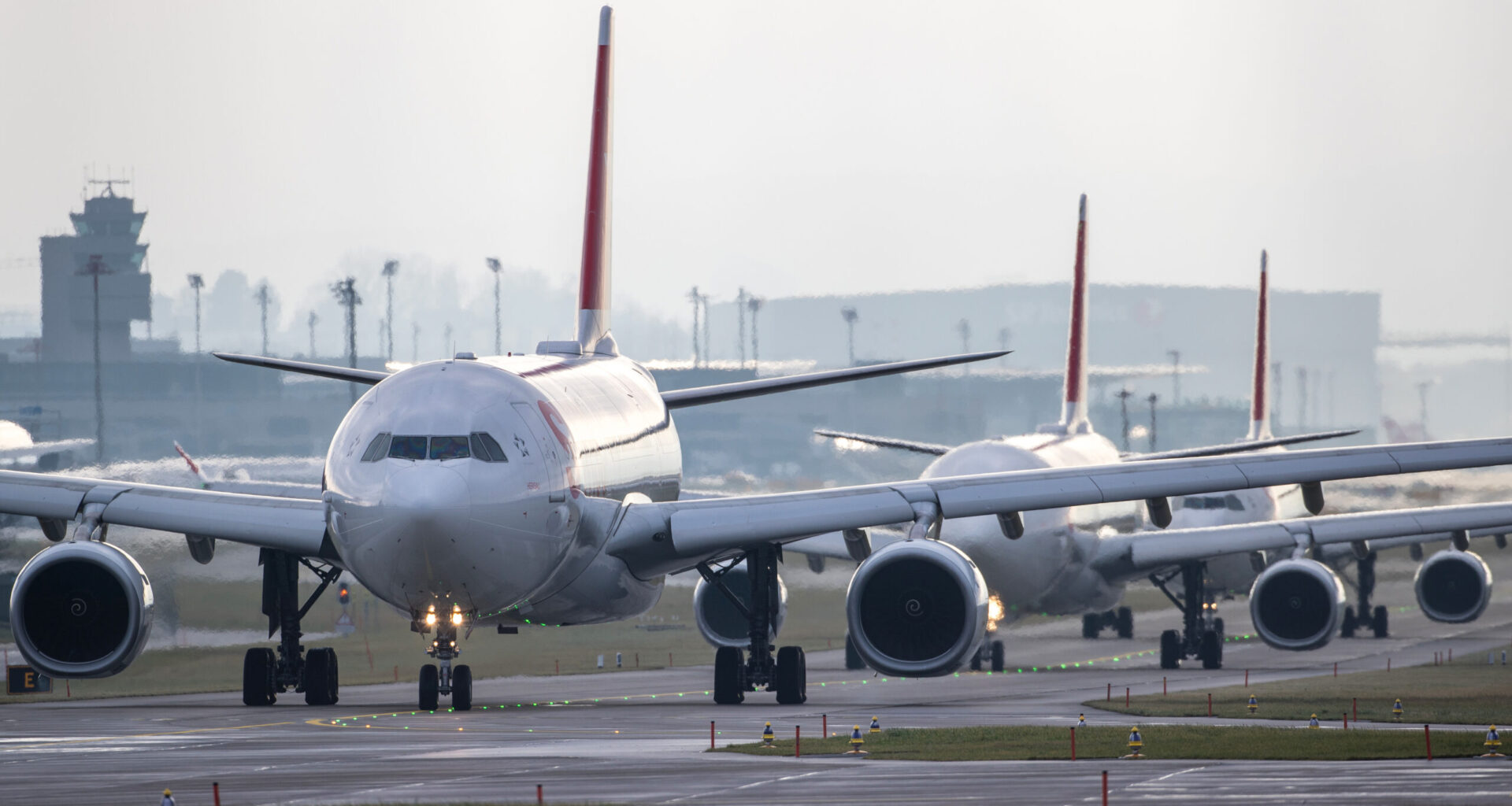You may have seen that Wizz Air recently ran a promotion for the sale of 10,000 ‘all you can fly’ packages. This triggered a lot of debate online particularly among members of the public who are concerned about climate change and recognise the need to reduce rather than unnecessarily increase demand for air travel. This raises interesting questions about how accepting people are of the idea of unlimited flying, and how receptive people are to changing their own personal travel behaviours.
Link to research referenced in this episode:
Higham, J.E.S., Viesten, K., Landa Mata, I., Farstad, E., Hopkins, D. & Bian, Y. (2024). Healthy persuasion: A values-based messaging approach to air travel decision-making. Journal of Sustainable Tourism.
Open access: https://doi.org/10.1080/09669582.2024.2399169
Episode transcript:
A few weeks ago in July Wizz Air, a low cost airline in Europe, ran a promotion with a difference. It was not seeking to sell tickets on particular routes on a range of dates. Instead it was promoting a sale of 10,000 ‘all you can fly’ packages – ‘unlimited flights’ for 400 pounds, with each flight incurring a ten pound administration fee.
This caused a lot of outrage, for three obvious reasons:
- Flying is by far the most carbon intensive mode of transport in common use today;
- Most flights are taken by the wealthy. Flying is very inequitable. Research has shown that growth in demand for air travel has come primarily from those who already fly a lot.
- The transition to ‘sustainable aviation’ that many airlines have promised is not happening. The airline industry routinely misses its sustainability targets.
International aviation emissions continue to grow, despite the need to halve gross global carbon emissions by 2030 to remain within 1.5-2.0°C of warming. It is now widely accepted that the aviation pathway to net zero is incompatible with continued demand growth, and that we must find ways to reduce levels of demand for discretionary leisure air travel.
This Wizz Air promotion provides a convenient segway to a paper that we published last week in the Journal of Sustaianable Tourism. The paper arises from a collaboration with colleagues at the Institute of Transport Economics in Oslo and is titled:
Healthy persuasion: A values-based messaging approach to leisure air travel decision-making.
This paper investigated air travel decision making in Norway. Despite high social awareness and individual concern for climate change, Norwegians continue to be among the most frequent fliers per capita in Europe and that is saying something.
But during the COVID pandemic when borders were closed Norwegians changed their holiday travel behaviours and returned to more traditional domestic holiday patterns. Many found that this enforced shift was quite welcomed because it took the need to fly and the stresses that may be associated with flying out of the holiday equation.
In this research project we borrowed the concept of ‘healthy persuasion’ which has been used in public health and we applied it to leisure air travel consumption.
‘Healthy persuasion’ is a public health social marketing strategy that aims to counter corporate efforts to drive the desire to consume products that cause negative individual or societal health outcomes – such as gambling, smoking, vaping and car dependence. ‘Healthy persuasion’ begins by segmenting members of the public into three groups based on their attitudes towards particular social issues. Those three groups, in the case of our research project, are:
- Supporters: Agree with messages that encourage less flying;
- Persuadables: Ambivalent and may move between supporting or opposing;
- Opponents: Disagree with messages that encourage less flying.
It then uses attitudes to inform values-based messages that are likely to be effective in appealing to supporters and persuadables to reshape their consumer decisions relating to air travel.
So what did we find? We found that in the case of Norwegians 32% were supportive of flying less and were already doing what they can to reduce their own holiday air travel behaviours. Just over half – 51% – fell into the category of ‘persudables’ which is actually quite encouraging. This should not be too surprising. Previous research has shown that Norwegians are generally aware and concerned about climate change, and are generally supportive of government action on climate change. We found that only 17% of the Norwegians that we surveyed opposed the idea of flying less.
When we explored values-based messages that might be effective in appealing to supporters and persuadables, we found that messages that address universal values such as protecting the environment, social justice and safeguarding travel opportunities for future generations were most effective.
We also found that fact-based messages, mythbusting and shaming were ineffective at best, if not counterproductive. So, for example, using facts such as how much CO2 is emitted on a particular flight will not persuade persuadables to fly less, whereas messaging that draws attention to flying with moderation today to safeguard opportunities to fly in the future were considered much more favaourably.
If you want to read our paper in full it is available online at the open access link provided at the end of the podcast transcript.
****
I should finish with the usual caveat – I’m not suggesting that anyone stop flying – that would be absurd, particularly in globally distant countries like Australia and New Zealand. It would also be hypocritical. But we do need to ‘fly differently’ by which I mean that those who fly a lot need to find ways to fly less if possible. In the absence of airlines making progress towards sustainability targets, our only option to reduce air travel emissions is to fly less.
The Wizz Air promotion does nothing to reduce unnecessary air travel – quite the opposite. If airlines continue to succeed in driving artificial demand for unnecessary flights, while failing to rein in their emissions, regulation will ultimately be inevitable.
At the very least our paper raises interesting questions as to whether Australians and New Zealanders can find ways to fly differently in order to fly less in order to reduce air travel emissions. Obviously Australia and New Zealand are very different to Norway in terms of our unavoidable reliance on long-haul air travel. But can we fly less? Are we supportive of flying less? Or if we are persuadable, how might we be persuaded?








